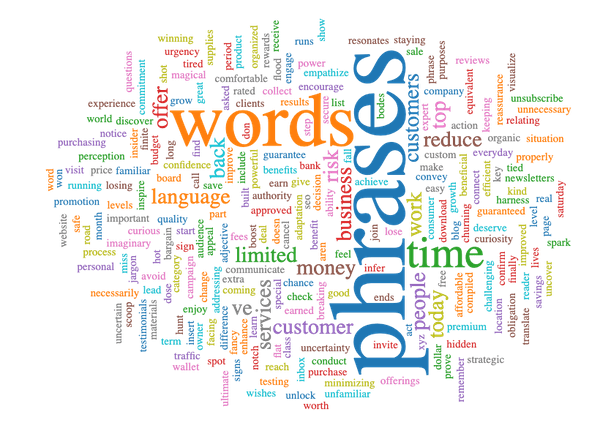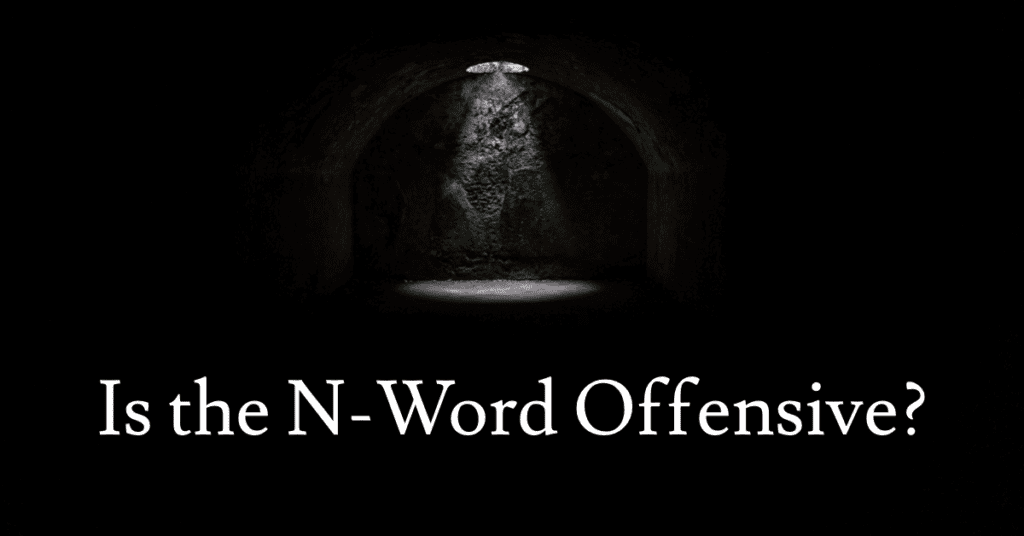Table of Contents
A couple of weeks ago I wrote a post about Joe Rogan’s controversial use of “the N-word” throughout his many years in the public eye. I feel like there were a lot of questions left unexplored, so I wanted to hop a little deeper into the subject.
N-Word vs. Kike

First off, someone asked me a question, one that I had thought about a great deal before he asked me, which is: Would I feel the same way if it were the word “kike” (a really nasty derogatory term for a Jew) being tossed around by Rogan. And my answer is: Yes, without a shadow of a doubt, my response would be the same.
I said it before and I’ll say it again: Context matters.
If some angry white supremacist looks at a group of black kids and starts harassing them and calling them the N-word, I think we can all agree that this is not a good thing. His behavior is immoral and gross, and we should all stand together to condemn such actions. However, if a white professor is teaching a class and discusses the origin of the N-word, and uses the word repeatedly because it makes it easier to teach, this is qualitatively different. You may not like it. You may think he shouldn’t teach that way. But you have to acknowledge that there is a vast chasm between the two scenarios.
Words aren’t inherently racist. People need to insert meaning into those words. Should a dictionary write the N-word instead of writing the word out properly? And if it did write the word out, would we consider it a work of racism?
So again, if someone calls me a “kike” to my face, and threatens me and those I love, I will be angry. And justifiably so. Outside of racial angst and hatred, there is room to use the word without it offending my sensibilities.
The Culture of Words

Furthermore, there is a vast culture that surrounds the N-word. You can hear the word on the streets day after day. It fills music lyrics. When Chris Rock wrote his famous routine about the black people he likes and the ones he hates, did he intend it to only be enjoyed by black people? Or does he want people to awkwardly quote his routine skirting around the words he used? If so, it’s quite an irresponsible use of the word then, isn’t it? We parents know if we want our children to not say certain things, the last thing in the world we should be doing is saying them ourselves.
To date, I have never heard a Jew call another Jew a “kike”. And I have not heard it used in any Jewish music I’ve ever listened to. There’s a certain level of responsibility when it comes to words, and if you want a word to be deemed “offensive” or off limits under any circumstances, it’s probably not the best idea to fill your culture to the brim with wanton public use of the word.
Whose Desicion Is It?

Now, you may say this last point is irrelevant, because it’s their word to use. And I get that. I hear the point loud and clear. And, in fact, I agree. It’s not up to me to decide whether or not something is an offensive use or misuse of a slur that is not aimed at me or my people.
However, a question bothers me all the time: Is it not equally offensive, or dare I say racist, to insist someone of another race, religion, or culture must be offended by something because you told them they need to be offended?
I’ve seen a whole lot of people complaining about how Joe Rogan spoke, yet I have seen next to no examples of black people coming out and condemning him. Only white people flipping out and telling him he spoke out of turn. He abused a word that he had no permission to handle.
And despite years of this grossly offensive behavior, it resulted in zero condemnation. Black people didn’t stop being his friend or being guests on his podcast. Nope. Dave Chappelle, Derick Lewis, Francis Ngannau, Israel Adesanya and countless others all appeared on his show. Yet the whitest of white America runs to criticize. They wave their righteous finger in front of the faces of others, calling them racists, and telling the black people of the world what they need to think.
Telling Others What to Think

But preventing anyone from forming their own thoughts and thinking for themselves is demeaning. What’s more offensive: Quoting a black person’s use of a racial slur or telling a black person how they need to feel about it?
I think we all know the answer to that question. But in case you missed it, you should really hear what Nigerian-born certified black Israel Adesanya says about the issue. I’m certain his is not the only opinion out there. But I’m also certain it’s a very prevalent one.
If it’s “their word” to use, how is it not also their word to decide when it’s offensive and who can use it under what circumstances? It’s so obviously condescending to tell another person or group they need to be offended by something, just because your poorly-defined moral code decides they should be. By doing so, you’re insulting people’s intelligence. And in my opinion, that’s far more racist than using a slur in a non-inflammatory way.
Fact is, context matters. Location matters too. What matters in one location might not be the same elsewhere. And the year and historical context matter as well. I’m right now reading Think and Grow Rich (1937). There was a moment in which the author referred to someone as a “colored girl”. I found myself immediately feeling uncomfortable. But then a thought popped into my head, one that is so ridiculously obvious that I’m shocked it never occurred to me before.
Preventing anyone from forming their own thoughts and thinking for themselves is demeaning. Share on XColored People vs People of Color

In 2022, to say “colored people” is radically offensive. Yet saying “people of color” is perfectly acceptable. In fact, it’s the polite and proper way to refer to black people. But they are literally the exact same thing! A subtlety in grammar and poof, the same phrase. In fact, I wonder whether if translated into other languages, it would actually be written the same more often than not.
What that means is that someone at some point decided some words were offensive and others were not. And this will change. It always does. And one day someone is going to make a video of you on YouTube repeatedly using the wildly offensive term “people of color”. You will, of course, apologize. And some of your defenders will site historical context as your reason for doing something you didn’t realize was offensive at the time.
But your explanations and apologies will do no good. The mob will already be coming for you.
And you will be canceled.
It is your destiny.



